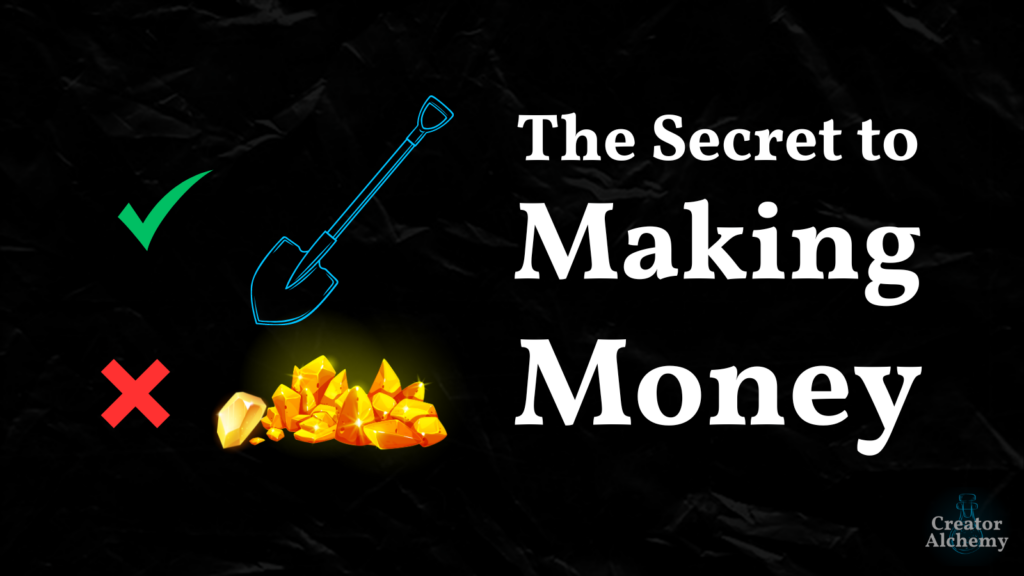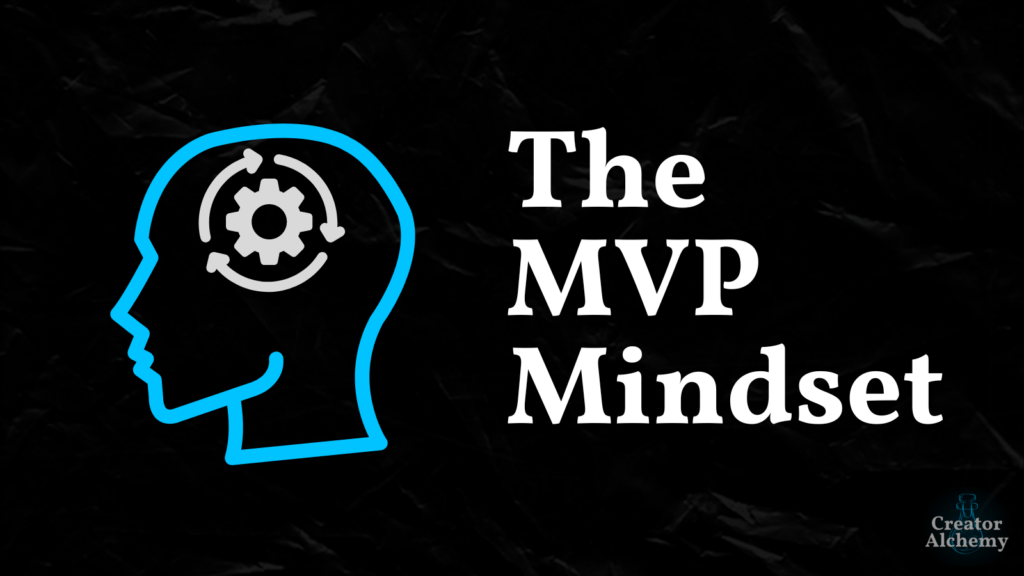It started as a painful bruise on my shin.
Then the pain got so bad I thought I’d broken it. But the color was off—it was spreading and turning weird shades of red and purple.
When I went to the ER, they said it was a mild infection and sent me home with antibiotics, and told me to come back if it got worse—no big deal.
A day later, I was back in the ER waiting to be transferred to a hospital for surgery. The infection had spread all over my leg, and they weren’t sure if it’d gotten into my bones or bloodstream.
If it had, it could kill me….
When you’re young, you don’t think that any week could be your last alive.
That night, as I laid in a hospital bed alone, with only the beeping of machines and occasional nurse checking my vitals as company, still waiting on test results to know if the infection had become life-threatening, I asked myself:
“If this has been my last week alive, am I satisfied with how I lived each day?”
This question is different from the typical “What would you do if you had seven days to live.” You can plan that out, party, skydive, whatever. It’s not a helpful thought experiment.
Taking inventory of how you’ve already spent your last seven days, going about your normal day-to-day routine, is way more powerful.
Immediately, you identify all the bullshit you do out of obligation that doesn’t matter. All the things you worried about that aren’t important. Everything you wish you would’ve done but were too afraid to try. All the things you put off because you thought you’d have more time.
Time is our most precious resource.
Because one day, you’ll look back and realize the past week was your last alive.
This realization can terrify you, depress you, or inspire you to make the most of the time you have left.
Today, most people deny their mortality and pretend they’ll live forever.
But ancient Stoics used their mortality to inspire them to live intentionally—to do meaningful, purpose-driven work that fulfilled them.
They did this through practicing the concept of memento mori—which means “remember you will die.”
It’s influenced the greatest leaders throughout history—from ancient Roman emperors to modern tech titans—to use their mortality as a motivator to live fully and build legacies that echo into eternity.
You can use memento mori to inspire you to overcome fear and achieve greatness, too.
Here’s how…
•••
What is Memento Mori?
Ancient Romans held extravagant ceremonies to celebrate successful generals after a great victory. It was the highest honor for a general—an accolade that could easily go to their heads and make them lose perspective.
Legend says that as the general paraded through the crowds on his chariot, a slave sat behind him, whispering, “Respice post te. Hominem te esse memento. Memento mori!“
Translation: “Look behind you. Remember you are mortal. Remember you will die!”
Memento mori helped them stay humble in moments of glory, practice gratitude in moments of happiness, and gain clarity in moments of confusion or fear.
“The idea that you’re going to die, and that life is short, is only depressing if you’re thinking about it wrong. If you’re thinking about it right, it should give you a sense of priority. It should even give you a sense of meaning. It should let you know what’s important and what you’re trying to do while you’re here on this planet.”
—Ryan Holiday
In essence, memento mori motivates us to reach our potential and pursue fulfillment—to live a great life.
Without something like memento mori to inspire us to achieve greatness, most people live a mediocre existence.
But what’s wrong with living in mediocrity?
Ask the 76%.
•••
What Holds Us Back from a Great Life?
Imagine: You’re on your deathbed looking back at your life. You made a lot of money, but it cost you a lifetime of doing unfulfilling and uninspiring work. Despite all your successes, you feel like your life was always missing something. You regret not pursuing that thing you always wanted to do. But you’re out of time to do anything about it now.
You’re on your deathbed, staring back at a lifetime of regret.
According to a Cornell University study by Dr. Tom Gilovich, 76% of people die with this same regret —they never lived up to their potential because they accepted a mediocre life.
Another scary number?
According to Dr. Abraham Maslow—who created the famous Hierarchy of Needs—less than 1% of people ever reach their potential.
So 99% of us never reach our potential or build a meaningful life, and 3/4ths of us die regretting it.
But why?
Why do so many of us choose mediocrity instead of pursuing meaningful, purpose-driven work that fulfills us?
One word: fear.
One of the first articles I ever wrote was inspired after I had multiple friends die with their manuscripts half-written. They let fear stop them from pursuing fulfillment until it was too late.
Fear is the number one reason people die with regrets.
Fear of uncertainty.
Fear of success.
Fear of ridicule.
Fear of failure.
Fear also disguises itself in self-sabotaging behaviors:
Procrastination—if you never finish, you never risk failure or success.
Perfectionism and Imposter Syndrome—as long as you don’t put yourself out there, you avoid ridicule.
Complacency—staying in your comfort zone keeps you safe from the unknown.
Memento mori is the antidote to fear.
Every fear that holds us back from reaching our potential or building a meaningful life is trivial compared to the fact we’re going to die.
You don’t know which path to choose or which decision to make?
Memento mori.
Are you afraid to live up to your potential because you’re scared success will make you grow complacent?
Memento mori. You get one life. Why waste it daydreaming when you could be doing?
You’re afraid of what critics might say about that thing you want to create?
Memento mori.
You don’t know if you’ll succeed if you pivot your company or take a risk that, though it could lead to fulfillment, isn’t guaranteed to work out?
Memento mori.
Fear makes us lose perspective.
Memento mori puts life back into perspective with crystal clarity, but only if we learn to harness its power.
•••
How Can Memento Mori Help Us Overcome Fear and Flourish?
“Live as if you were living already for the second time.”
—Viktor Frankl
Viktor Frankl was an Austrian psychiatrist and Holocaust survivor famous for his book, Man’s Search for Meaning. In it, he talks about how his experiences being surrounded by death in the camps forced him to examine his own existence and what it meant to create a meaningful life.
“Ultimately, man should not ask what the meaning of his life is, but rather he must recognize that it is he who is asked. In a word, each man is questioned by life; and he can only answer to life by answering for his own life; to life he can only respond by being responsible.”
Time and time again, we hear about people having near-death experiences and coming away profoundly transformed by the experience. They live every single day with renewed vigor, gratitude, and courage to pursue meaningful work.
But you don’t have to have a near-death experience to gain the insights from having one.
Memento mori forces us to contemplate our own mortality without actually risking it.
Tim Ferriss, modern Stoic and author of The 4-Hour Workweek, uses memento mori to gain clarity to make better decisions:
“The awareness of [the impermanence of life is] …greatly encouraging because it drives a sense of urgency, or at least time sensitivity to a lot of my decisions…It doesn’t matter how much money you’re willing to pay on your deathbed—you’re not going to be able to buy back more time.”
He also uses it to keep his priorities at the forefront of every interaction by asking:
“If I were 80 and my dog has long since passed away, maybe my wife has passed away…how much would I pay to be with them again?”
Social media icon Gary Vaynerchuk uses memento mori to fuel his iconic energy and ambition to build a media empire:
“The reason I believe [in the philosophy of memento mori] is because it’s ultimately practical. It’s the guiding light and the fire and ambition that drives me toward legacy and living my best life.”
Ryan Holiday, another modern Stoic and author of several Stoicism-themed books, including The Daily Stoic and The Obstacle is the Way, keeps memento mori-themed artwork in his home to remind him to make the most of each day:
“Having this reminder of my mortality, that life is ephemeral, that life is finite, that life is fragile, that someone is actually actively trying to take it from me, is incredibly empowering.
It reminds me of what’s important. It’s why I work so hard, but it’s also why when my son comes to the stairs and calls me to come play, I have no problem stopping work like that, and doing it. Because it could be the last time that he asks me. This could be my last day on this planet.
So having some tangible reminder of memento mori, of the dance of death, of the ephemerality of life is deeply empowering.”
Instead of living each day in fear or denial of his mortality, Holiday embraces it and uses it to propel him to do fulfilling work—in his case, writing multiple best-selling books, speaking, managing a consulting company, running his own bookstore, and being a father and husband:
“Death is ever-present. And as unpleasant as it may be to think about, as wonderful as it would be if there was no such thing as death, we have to use death as a tool. We have to use it as a spur to move us forward as a reminder of what’s truly important. And we have to be made better for the fact that we don’t know how much time we have.”
Because no matter how much money you have, no matter how important you think you are or how much you do, you’re still mortal.
In his 2005 Stanford Commencement Address, Steve Jobs talks about his first cancer scare and how memento mori influenced his approach to life and business:
“Sometimes life’s going to hit you in the head with a brick. Don’t lose faith. I’m convinced that the only thing that kept me going was that I loved what I did. You’ve got to find what you love…Your work is going to fill a large part of your life. And the only way to be truly satisfied is to do what you believe is great work. And the only way to do great work is to love what you do. If you haven’t found it yet, keep looking, and don’t settle.”
Like Ferriss, Jobs practiced his own version of using memento mori to keep his priorities at the forefront of his life:
“For the past 33 years, I’ve looked in the mirror every morning and asked myself, ‘If today were the last day of my life, would I want to do what I am about to do today?’ And whenever the answer has been ‘no’ for too many days in a row, I know I need to change something.”
This doesn’t mean quitting when things get boring or hard.
Jobs used memento mori to stay focused on meaningful work instead of falling into the trap of spending his life doing unfulfilling, uninspiring work:
“Your time is limited. So don’t waste it living someone else’s life. Don’t be trapped by dogma, which is living with the results of other people’s thinking. Don’t let the noise of others’ opinions drown out your own inner voice. And most important, have the courage to follow your heart and intuition—they somehow already know what you truly want to become. Everything else is secondary.”
And more than anything, Jobs used memento mori to overcome the same fears that keep so many of us from doing meaningful work:
“Remembering that I’ll be dead soon is the most important tool I’ve ever encountered to help me make the big choices in life.
Almost everything—all external expectations, all pride, all fear of embarrassment or failure—these things just fall away in the face of death, leaving only what is truly important.
Remembering that you are going to die is the best way I know to avoid the trap of thinking you have something to lose. You are already naked. There is no reason not to follow your heart.”
The collective result of using mortality as a motivator to live fully and do intentional work?
Legacies that echo into eternity.
Each of us has the capacity to pursue a great life, if we’re willing to face our fears and do work that matters.
•••
Wrapping Up
“You could leave life right now. Let that determine what you do and say and think.”
—Marcus Aurelius
Memento mori isn’t supposed to demotivate or frighten you. It’s meant to kick your ass in gear to live fully and be intentional with how you spend your most precious resource—time.
To spend each day doing work that inspires you and spending time with people who energize you and make life worth living.
Death is guaranteed. But a great life? That’s reserved for those willing to make the most of themselves. To build a legacy worth building. To live each day inspired to do meaningful, purpose-driven work that fulfills them. To take nothing for granted and find joy in the small things.
If you received a terminal diagnosis today, meaning you only had a few hours to live. If you reflected on how you’ve already spent your last week, would you be satisfied?
Every day we knock on Death’s door. One day, Death will answer.
How will you live until then?
“So as you face the coming days, weeks, months, and years of your life, always remember your own mortality.
Remember how precious every day really is.
Do not hide from it.
Embrace it.
Let it motivate and inspire you.
Let it be a call to action.
Memento mori.”
—Sahil Bloom
Now, I spend each week doing fulfilling work. I write online about psychology and personal development. I help entrepreneurs flourish through coaching. I practice BJJ. And I spend time with my loved ones.
So if you ask me if this had been my last week alive, am I satisfied with how I lived each day?
Today, my answer is, “Yes.”
What’s yours?



